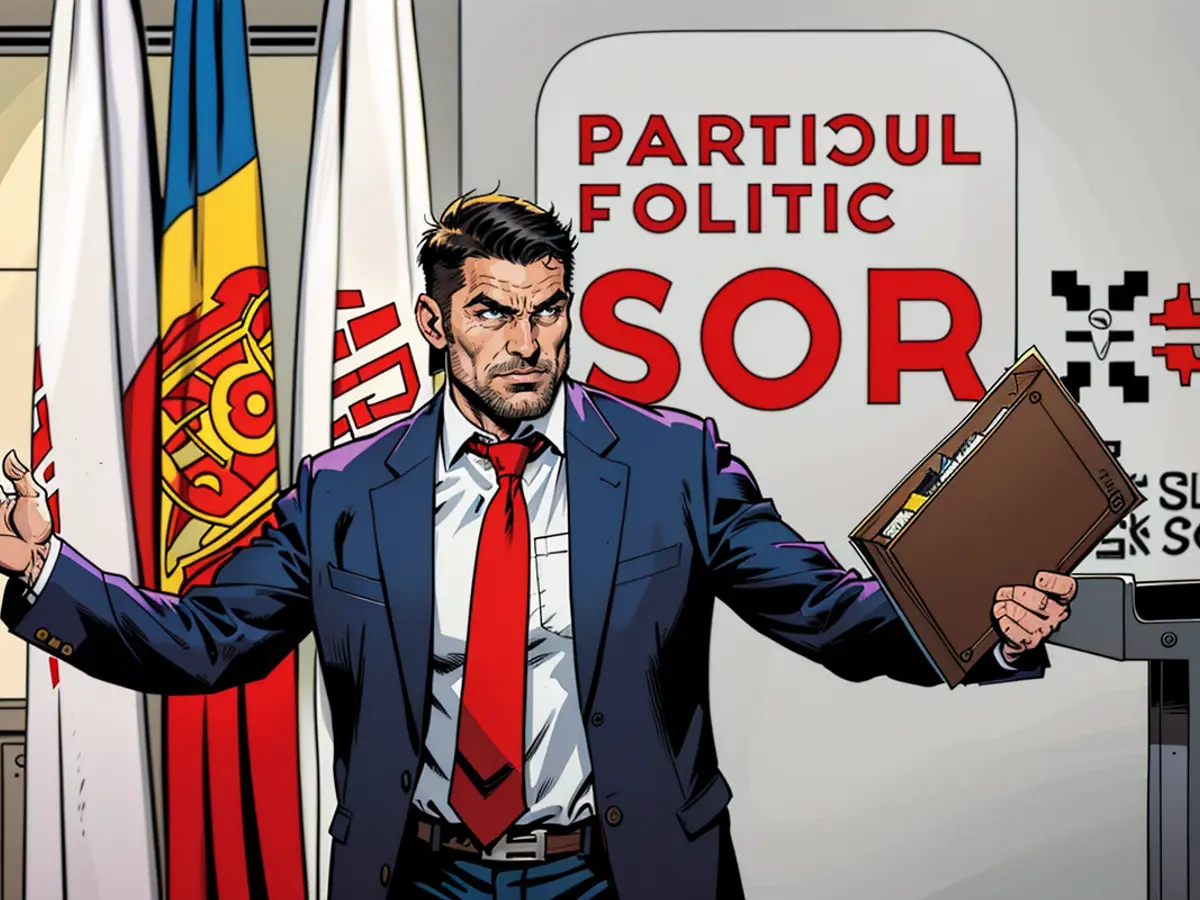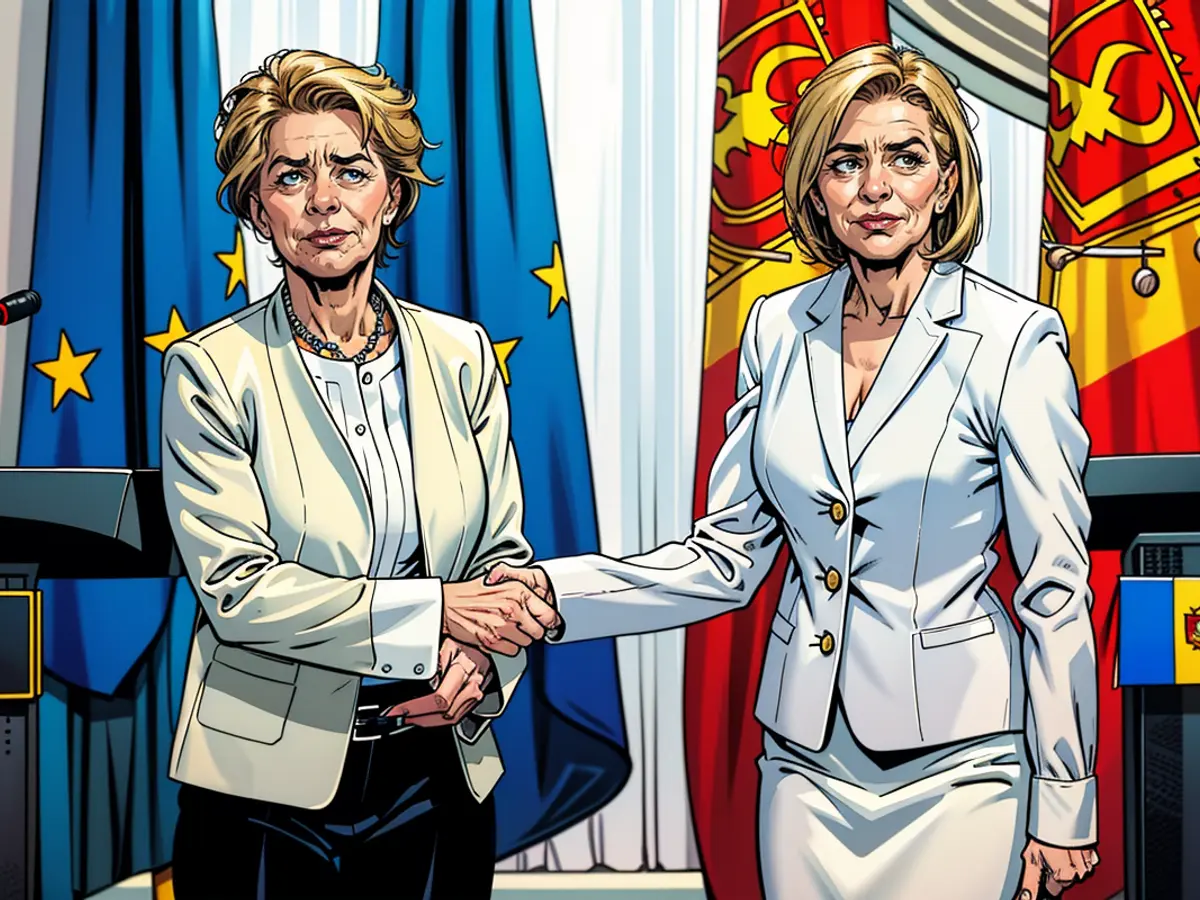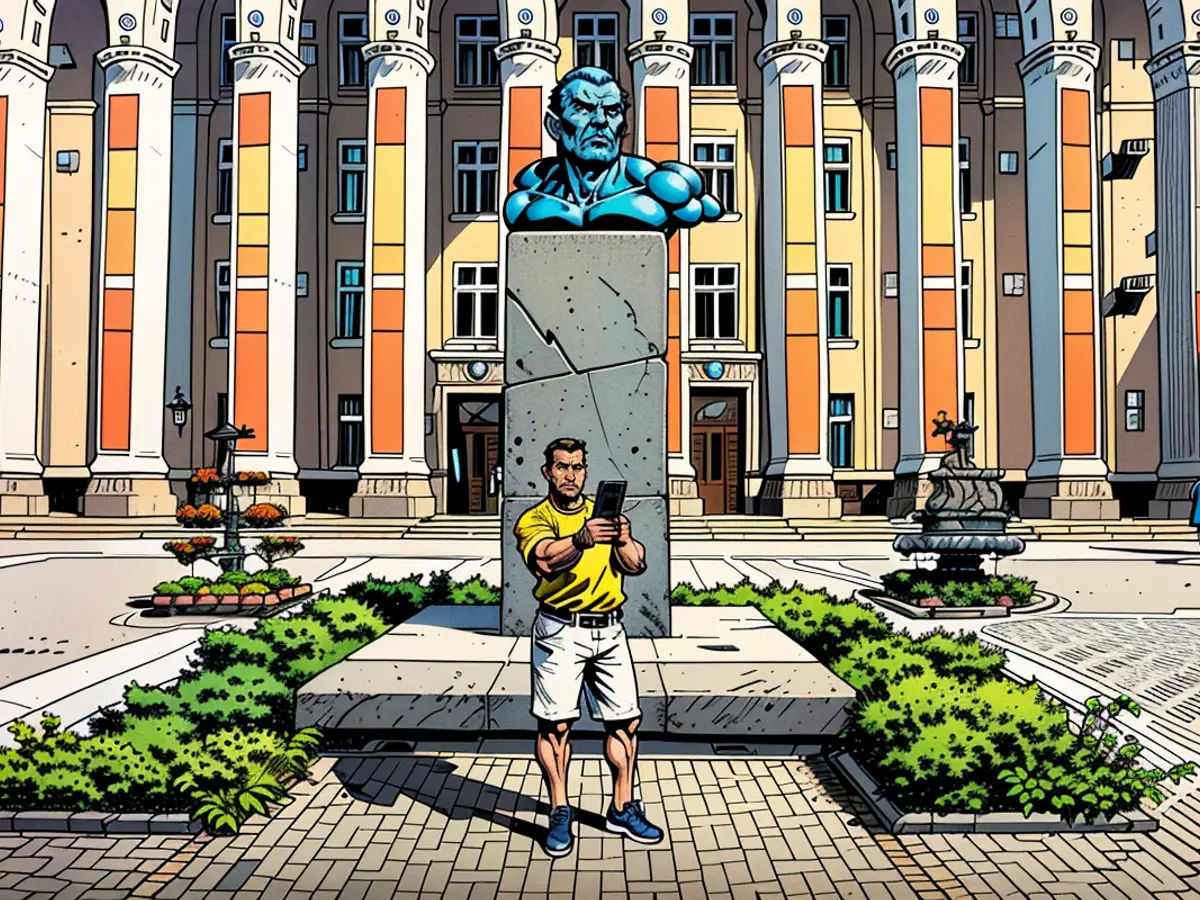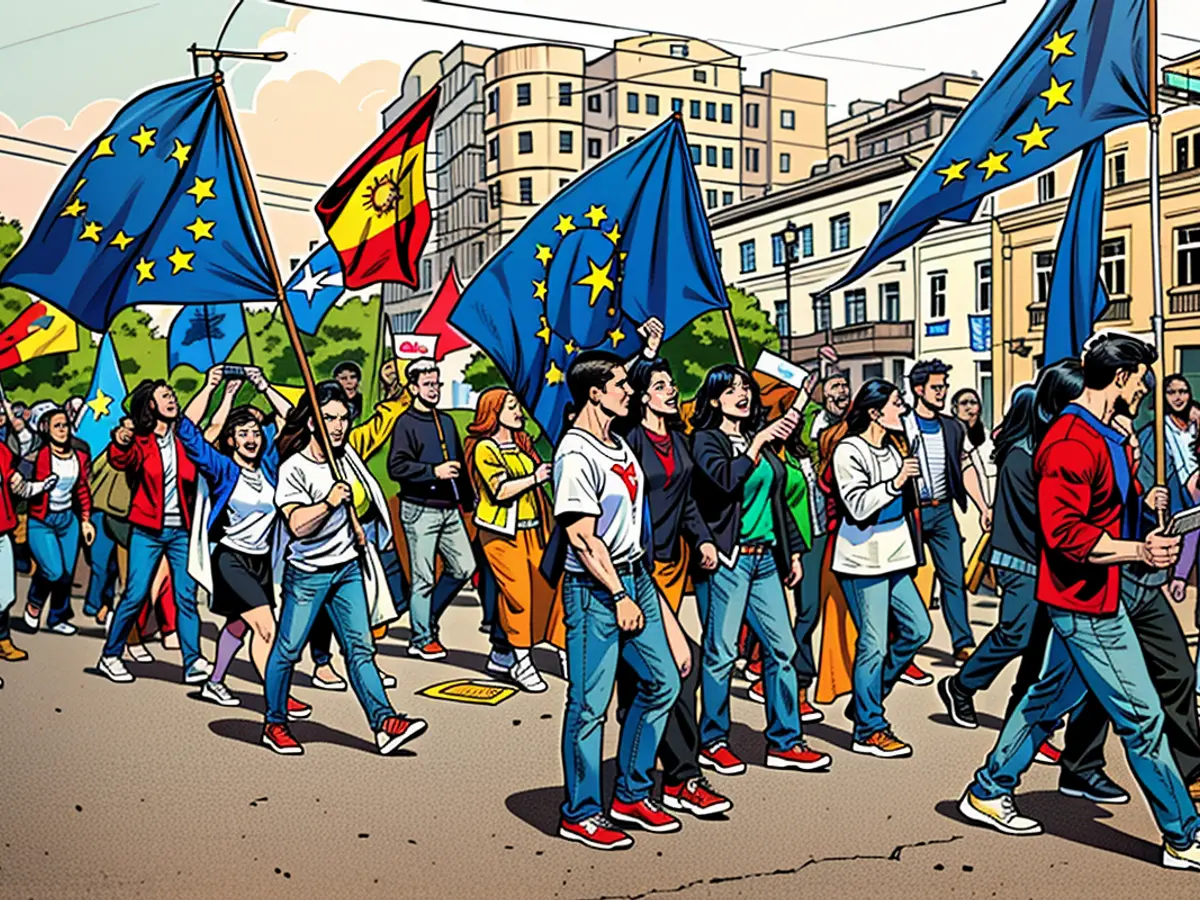Moldova experiences a tug-of-war between Russia and the Western nations in two significant voting events.
Certain individuals casting votes have been presented with an opportunity to pocket some extra cash. Ilan Shor, a Moldovan tycoon with ties to the Kremlin, has announced his intention to compensation people who help elect a Russia-aligned candidate and thwart the referendum's acceptance.
Following his conviction in absentia for his involvement in embezzling $1 billion from Moldovan banks in 2014, Shor has primarily remained in Russia, where he established a political organization that Moldovan leaders allege interferes with their nation's presidential election and EU referendum.
In addition to a more sophisticated disinformation strategy, Shor has adopted less refined tactics to influence Moldovan politics. Last month, Shor posted a video on his Telegram in which he pledged to give voters the equivalent of $28 if they registered with his campaign, with the possibility of receiving further payouts for positive results.
“If you perform well and the majority of individuals in your area vote against (the referendum), the bonus you receive directly from me on your card will be 5000 lei ($280),” Shor declared.
Officials assert that Shor's offer corresponds to an extensive initiative designed to sway the election's outcome, which may dictate whether Moldova continues its journey toward the West or remains anchored within the Kremlin's sphere of influence.
Situated in eastern Europe, with a population of approximately 2.5 million people, sandwiched between Romania and Ukraine, Moldova has traversed between pro-Western and pro-Russian platforms since the end of the Cold War.
Russia maintains around 1,500 troops in Transnistria, a small territory that unlawfully split from Moldova as the Soviet Union disintegrated and has since been governed by pro-Russian separatists.
Moldova's pro-Western faction has held the reins since 2020, when Maia Sandu – a Harvard-educated former World Bank official – achieved a landslide victory in the presidential election, vowing to reform the nation's judiciary and tackle corruption, an endemic issue. Her Party of Action and Solidarity seized a majority in parliament the next year. She's now seeking a second presidential term and is widely regarded as the front-runner.
As in several formerly Communist nations, Moldovan politics was jolted by Russia's invasion of Ukraine in February 2022. Home to a Romanian-speaking majority and large Russian-speaking minority, many Moldovans historically regarded Russia as a benevolent protector. However, as Russian troops advanced toward Odessa – close to Moldova's eastern border – and over 500,000 Ukrainian refugees sought refuge in Moldova, numerous individuals in the country became cognizant of their own susceptibility to Russian aggression.

“We are incredibly grateful to the Ukrainians because they defend not only themselves, but us – and maybe half of Europe,” Vadim Pistrinciuc, director of the Institute for Strategic Initiatives, a think tank in Moldova, told CNN.
Russia's invasion hastened Moldova's trajectory toward EU membership. Although Sandu had ambitions of entering the union, Moldovan officials were aware that this objective was distant, according to Nicu Popescu, Moldova's former foreign minister and deputy prime minister.
“But when the war started, it changed the conversation entirely,” Popescu, now a distinguished policy fellow at the European Council on Foreign Relations, told CNN. Moldova, one of Europe's poorest countries, was granted candidate status in June 2022.
The conflict even put an end to Moldova's almost total reliance on Russian gas, though at a cost. The country was thrown into an energy crisis when Russia's Gazprom substantially reduced gas supplies and raised its prices, allegedly as retaliation against Sandu for moving closer to Western Europe. As winter approached, Moldova swiftly had to arrange alternative energy supplies from Europe. As of late last year, it no longer purchased gas from Gazprom. “Moldova can no longer be coerced anymore,” the country's energy minister said this year.
Opposition ‘lost its identity’
Polling suggests that many Moldovans have been supportive of Sandu's first term. A CBS-AXA survey found that over 36% of Moldovans backed Sandu, placing her far ahead of any of her 10 competitors.
If no candidate secures 50% of the vote on Sunday, a second-round vote will be held on November 3.
Sandu's closest adversary, former prosecutor general Alexandr Stoianoglo, ranks second with just over 10% of support among those surveyed. Nonetheless, analysts assert that his platform reflects the disarray in which Russia's war in Ukraine has left Moldova's opposition parties.

Regardless of running for the traditionally pro-Russian Party of Socialists, Stoianoglo advocates for Moldova joining the EU – a prospect that would have been unthinkable just a few years ago, according to Maksim Samorukov, a fellow at the Carnegie Russia Eurasia Center.
“The war has destroyed their self-identity,” Samorukov told CNN, referring to Moldova's Russia-friendly politicians. “They don't know how to reconcile the new reality of Russia waging a brutal, bloody war against their neighbor, with their past slogan of... Russia as a traditional elder brother of Moldova.”
‘Russia is financing this’
Instead, officials assert that Russia is investing more resources into trying to sway the EU referendum, when Moldovans will be presented with the option of supporting constitutional changes that could pave the way for their country joining the bloc.
Moldova's top cop, Viorel Cernauteanu, went on record this month, revealing that over 130,000 Moldovan citizens had been influenced by a Russian-led scheme to cast votes against the referendum. He further disclosed that a whopping $15 million was transferred last month alone, to sway votes and even pay individuals up to $5,500 for damaging public property.
Cernauteanu didn't mince words, stating, "It's evident that Russia is bankrolling this."
Russia's press secretary, Dmitry Peskov, pushed back against these allegations, stating that there are still numerous Moldovans who support partnerships with their country. Peskov made these remarks during a recent press briefing.
Pistrinciuc, another Moldovan official, added that the citizens have been bombarded with online propaganda. The content of this propaganda ranges from personal attacks against Sandu to warnings about potential war and the forced imposition of LGBTQ ideologies upon the nation.

Pistrinciuc described the online offensive as, "Enormous, it's almost incomprehensible given the size of the country."
Moldovan officials express alarm over these developments, while Samorukov interprets them as a sign of Russia's diminishing influence in the country.
"This is a manifestation of Russia's dwindling appeal in Moldovan society," Samorukov stated. "Furthermore, it highlights the sheer laziness and cynicism of the Russian leadership, who have abandoned all attempts at projecting soft power and instead opted for outright vote buying."
Popescu weighed in, sharing his belief that vote buying yields only temporary results. He elaborated, "Once the funds dry up, so does the support. This strategy primarily appeals to individuals with weak beliefs, those who typically abstain from voting and have reached a state of disillusionment."
However, even if Sandu emerges victorious in both the presidential election and EU referendum, Popescu anticipates the Kremlin's meddling to carry on.
"This is more about creating instability and bolstering the chances of Russia-backed candidates in next year's parliamentary elections," Popescu warned.
CNN's Anna Chernova contributed to this report.
Despite Russia's interference in Moldova's political landscape, the nation remains committed to its journey towards the West, as highlighted by Moldova's granting of candidate status to the EU in June 2022. However, Russia continues to exert its influence in Europe, as seen in its activities in Moldova's EU referendum.
Shor's offer of compensation to voters who help elect a Russia-aligned candidate and thwart the referendum's acceptance is part of a larger initiative designed to sway the election's outcome. This initiative, allegedly funded by Russia, is an example of how the Kremlin attempts to influence politics within Europe's borders.








